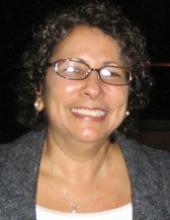Interleukin-5 appears to play an important role in the accumulation of eosinophils in pediatric eosinophilic esophagitis, because treatment with the anti-IL-5 monoclonal antibody mepolizumab reduced the mean eosinophil count in 89% of children, Dr. Amal H. Assa’ad and her colleagues reported in the November issue of Gastroenterology.
In this double-blind, randomized, prospective trial of mepolizumab in children aged 2-17 years, the reduction in eosinophil count became evident within 4 weeks after the conclusion of therapy. The effect persisted for another 16 weeks, but to a lesser extent (Gastroenterology 2011 November [doi: 10.1053/j.gastro.2011.07.044]).
The etiologic role of IL-5 has been established in animal models of eosinophilic esophagitis (EE), and mepolizumab has been found effective in adults with several eosinophilic disorders, including eosinophilic dermatitis, eczema, asthma, and EE.
The authors assessed the efficacy and safety of three monthly intravenous infusions of the drug in 57 children who had isolated EE that was unresponsive to standard dietary and steroid therapies. Three doses were used: minimal (0.55 mg/kg), low (2.5 mg/kg), and high (10 mg/kg). The 0.55-mg/kg dose "was expected to be minimally efficacious" and served as a comparator. It was considered unethical to have a placebo group because all participants had to undergo multiple biopsies under general anesthesia.
Biopsies were obtained during endoscopy at baseline, week 12, and week 24 from the distal and middle esophagus, as well as areas where macroscopic changes such as white plaques were noted, said Dr. Assa’ad of Cincinnati Children’s Hospital Medical Center, and her colleagues.
The primary efficacy end point was the proportion of patients with a complete response, defined as a peak esophageal intraepithelial eosinophil count of less than 5 per high-powered field (hpf) at week 12. Five of 57 patients (9%) achieved this end point.
Overall, the peak eosinophil count decreased from 123 per hpf at baseline to 40 per hpf at week 12. It rose to 82 per hpf at week 24 – still lower than baseline. Similarly, the overall mean eosinophil count was 39 per hpf at baseline, 9 per hpf at week 12, and 23 per hpf at week 24.
At 12 weeks, 18 patients (32%) had peak intraepithelial eosinophil counts less than 20 per hpf, and 51 (89%) had mean intraepithelial eosinophil counts of less than 20 per hpf.
Treatment response did not consistently correlate with the dose of mepolizumab, which indicates that lower doses may be therapeutic, they added.
"Of all the esophageal histopathologic abnormalities present at baseline, eosinophil microabscesses and eosinophil aggregations resolved in most patients at week 12, and remained mostly resolved at week 24. [In contrast,] basal zone hyperplasia and increased papillae length showed a low rate of resolution."
The authors performed a post hoc analysis to identify factors that might predict treatment response. The only factor found to predict a complete response to mepolizumab was a higher baseline eosinophil count, whereas age, sex, race, body mass index, age at onset of EE, disease duration, previous therapies, and symptoms were not predictive.
Patients’ symptoms were less frequent after mepolizumab therapy, but not to a significant degree. This may be because patients had minimal symptoms at baseline, which limited the capacity to show clinically relevant improvement.
There were no hypersensitivity reactions to the drug, no dose-related trends in adverse event rates, and no clinically relevant changes in vital signs, laboratory results, or ECG. GI adverse events were common but were likely related to the underlying disorder, the investigators said. They concluded that the safety of this monoclonal antibody was demonstrated for the first time in children.
This study was sponsored by GlaxoSmithKline; employees of the company contributed to the study design and collection, analysis, and interpretation of data. Dr. Assa’ad’s associates also reported ties to Cephalon, Meritage Pharmaceuticals, and Sunovion.


